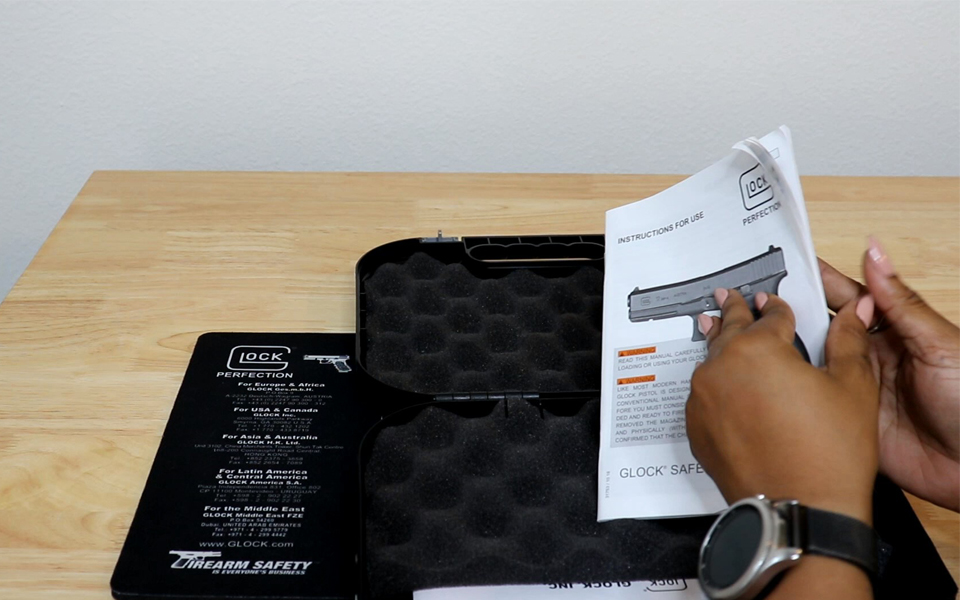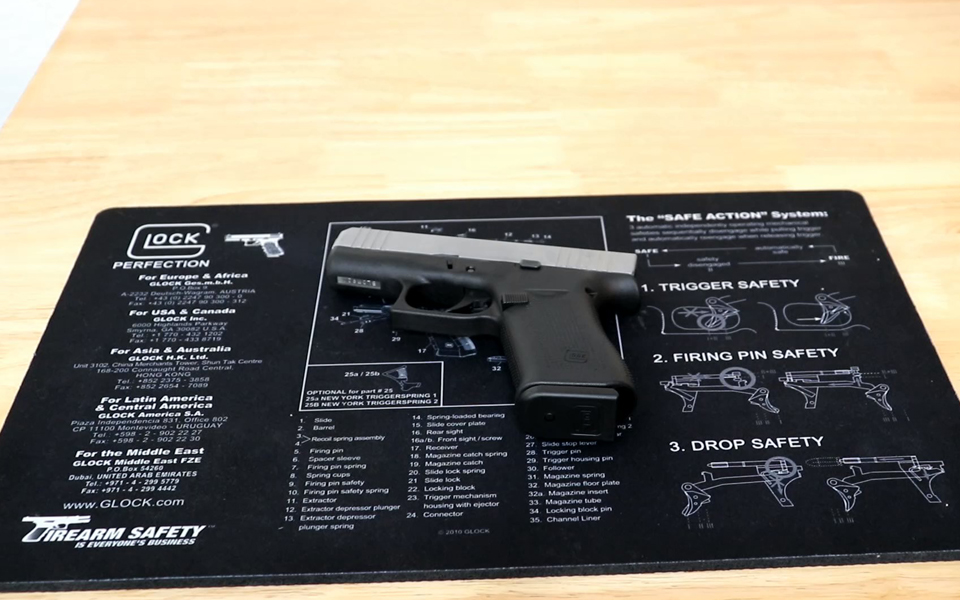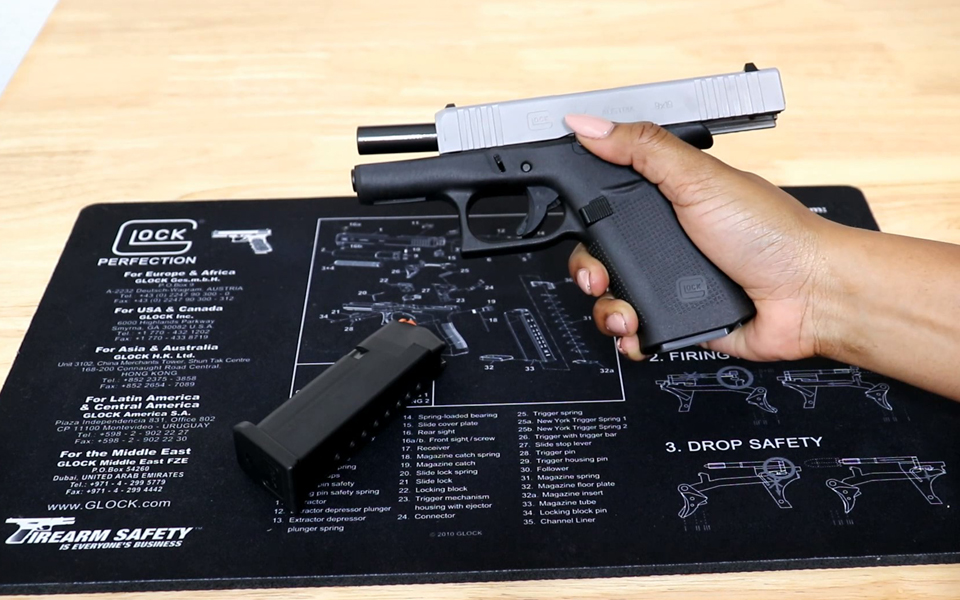In the first video of our series, we talked about the importance of proper firearm storage and listed a few firearm storage solutions for you. Although proper storage plays an important role, maintaining your firearm is also a vital component of being a responsible gun owner. Simple maintenance will help improve your firearm’s reliability, accuracy and longevity.
Sponsored by GLOCK
Our vehicles have service intervals listed in their owners’ manuals; but the same thing is not true when it comes to our firearms. Before you complete any maintenance on your firearm, you should first review your owner’s manual.

This should have come with your firearm when you purchased it. If yours did not come with a manual, you can always review the owner’s manual for your firearm online. For this demonstration, I am using my GLOCK 43X.

When you review your owner’s manual, you should find out things such as maintenance recommendations your manufacturer suggests you complete, and how to disassemble your firearm. Not all firearms have the same parts and some may require special tools. It’s extremely important to know the correct way to do these things prior to starting any maintenance.
Now that you’ve reviewed your owner’s manual, you should make sure that your firearm is safe to clean. Don’t have any live ammunition within the area that you’ll be cleaning your firearm. Follow your manufacturer’s instructions to verify that your firearm is unloaded. When you clean your firearm ensure that you’re located in an area that is well lit and well-ventilated while also wearing gloves, and eye protection.

Now it’s time to clean your firearm. Your next step is to disassemble your firearm, which is also known as field stripping.
Once you’ve properly cleaned your firearm, the next step is for you to lubricate your firearm. Your owner’s manual should detail the points on your firearm that require lubrication. Your firearm should be well lubricated prior to being stored. Adding lubricant to your firearm will also help prevent rust.
Firearm maintenance is not regulated by a strict schedule of maintenance and cleaning. Cleaning your firearm after every time you fire it is often viewed as unrealistic and unnecessary. My advice to you, is to get to know your firearm. Inspect it often and build good habits of maintenance and inspections. This could help you identify issues that may lead to malfunctions down the road. Take care of your firearms so that they can perform for you when you need them to, especially in a defensive situation.
Avery Skipalis is the owner of Skip’s Tactical Solutions, an organization that focuses on empowering women, men and children to make sure that no one else becomes a victim. She gained her firearms experience from the military where she’s been a military firearms instructor for 10.5 years. She’s also a certified NRA rifle and pistol instructor and Glock Advanced Armorer since 2015. She’s attended Sig Sauer Academy, FNH, Special Operations Command Armorers courses as well as multiple Advanced Shooting Schools across the United States. She resides in Florida with her husband and 2 kids. She’s currently serving in the United States Air Force and loves sharing her passion with others. She thinks it’s important that women also feel like they’re in control of their own safety. View all posts by Avery Skipalis